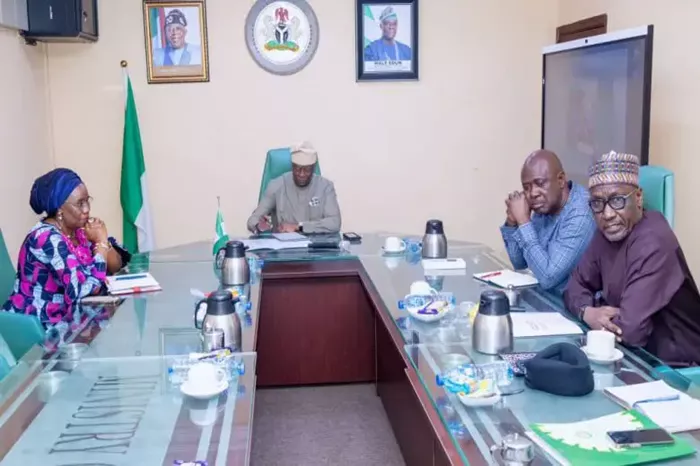Nigeria’s Finance Minister, Wale Edun, has officially inaugurated a technical sub-committee tasked with overseeing the sale of crude oil to local refineries in naira. This initiative is part of a broader effort to enhance the country’s refining capacity and stimulate economic growth.
According to a statement released by Mohammed Manga, the Director of Information and Public Relations at the Ministry of Finance, the move follows the Federal Executive Council (FEC) approval on July 29 of a directive proposed by President Bola Tinubu. This directive instructs the Nigerian National Petroleum Company Limited (NNPCL) to sell crude oil to local refineries, including the Dangote refinery, in naira rather than in foreign currency.
The finance ministry’s statement indicated that the committee’s formation came after a stakeholders’ meeting involving government officials and representatives from local refineries, including the Dangote refinery. The committee is composed of Lydia Jafiya, Permanent Secretary of the Ministry of Finance; Zacch Adedeji, Executive Chairman of the Federal Inland Revenue Service (FIRS); and representatives from NNPCL, the Central Bank of Nigeria (CBN), Afrexim Bank, and the Nigerian Upstream Petroleum Regulatory Commission (NUPRC). This team is charged with developing a comprehensive framework to ensure the effective implementation of the new policy.
In a related development, the NUPRC has introduced the Alternative Dispute Resolution Centre (ADRC) to address issues within the oil sector. NUPRC Chief Executive Gbenga Komolafe emphasized that the ADRC represents a crucial advancement in improving the efficiency, fairness, and effectiveness of dispute resolution within the upstream oil industry. The ADRC aims to stabilize the sector and facilitate sustainable growth by resolving conflicts more efficiently.
Olayemi Anyaneschi, the NUPRC Secretary and Legal Adviser, noted that the commission has faced numerous disputes, including those involving host communities. Many of these disputes, arising from the 2020 marginal bid round and the Petroleum Industry Act (PIA), have been settled out of court. Anyaneschi highlighted that the commission’s involvement in these cases has led to significant financial expenditures.
Meanwhile, the Defence Headquarters (DHQ) has reaffirmed its commitment to combat economic sabotage and crude oil theft. Maj. Gen. Edward Buba, Director of Defence Media Operations, reported improvements in Nigeria’s crude oil production for July and August. During a recent press briefing, Buba revealed that military operations in the Niger Delta had resulted in the arrest of 23 suspects involved in oil theft and the prevention of theft attempts valued at approximately N943 million. The operations also led to the destruction of 15 dugout pits, 17 boats, 62 drums, one receiver, and 27 storage tanks, as well as the recovery of substantial quantities of stolen crude oil and other illegal refining equipment.
Related topic:
How Is Gasoline Made From Crude Oil?

